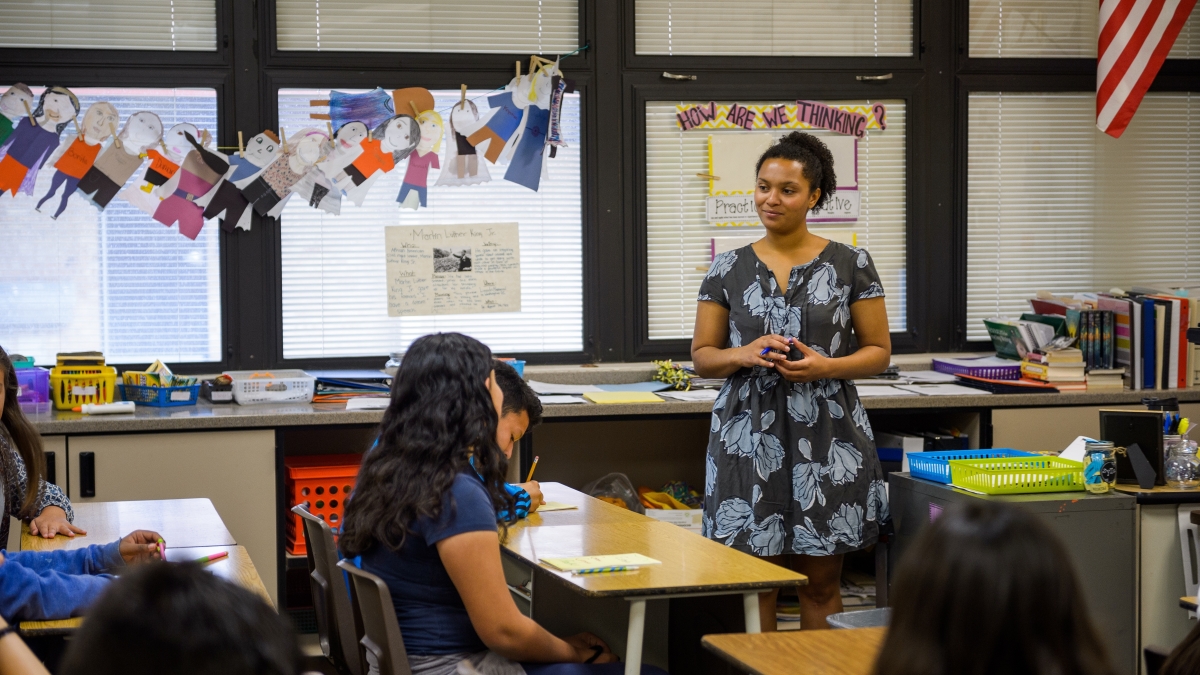How can teachers compete with cell phones, social media and other distractions?

Teachers at every level struggle at times with keeping students engaged. But starting a lesson with a current event and questions to consider might better engage both students and educators.
Consider Flint, Michigan’s water crisis. The contamination of Flint’s water supply can be explored from a variety of perspectives — interpreting data, exploring cause-and-effect relationships or even discussing the long-term impact of using bottled water to replace tap water. Questions on the issue that could be used in classrooms to teach many subjects include:
• How do we know the water is contaminated?
• How much fresh water is used in Flint schools each week?
• Is clean drinking water a right, or a privilege?
With funding from the Bezos Family Foundation, Annie Warren, director of research and development at ASU’s Biodesign Institute; Leanna Archambault, associate professor at Mary Lou Fulton Teachers College; and Lee Hartwell, ASU-affiliated faculty, and Nobel Prize recipient (in physiology), are leading a team in developing an online tool kit for educators focused on sustainability education. The grant supports development of a Teaching Time Capsule, a tool for K–8 teachers to weave sustainability into existing course materials.
“Sustainability is something we hope teachers will work into every lesson so that it becomes a way of thinking for young people. It’s not a separate activity. Sustainability can be a part of all topics,” said Warren.
This Teaching Time Capsule will be an interactive website providing access to teaching tools related to current events and other appropriate topics. By aligning the content with current education standards, Archambault said, the team hopes to make topics transferable across the curriculum.
Hartwell, Warren and Archambault are working with 25 other professionals in ASU’s office of Sustainability Science Education to create and implement the Teaching Time Capsule. These colleagues make up the Sustainability Science Education Project Team, founded in 2011 and focused on sustainability science for the future through education of teachers.
“Sustainability is simply a way to look at an issue or a problem,” said Warren. “By discreetly putting sustainability into play while studying any social issue, teachers can creatively teach young people to consider implications of the many possible solutions to an issue and also to have a sense of wonder and curiosity about how problems came to be and what we can do, moving forward, to solve or prevent them.”
The time capsule will have two components. One will be free content, such as lesson plans, all tied to state and national standards. The other will be more enhanced materials for which users pay a nominal fee to download and modify.
Two online continuing education classes will also be available, so teachers can enroll and take advantage of the content without traveling or sacrificing classroom and personal time to grow and learn, Warren said. The team has hopes of expanding the online professional development opportunities over time.
Archambault emphasized that this project will include longitudinal research: “We’ve been wanting to track our results and see where we may have an impact because we never want to just assume that because we do something, we are making a difference. We want to find out what works and why.”
The website content will be developed in part by ASU alumni who are now teaching. They will share expertise and content they have already created and used with students.
“Teachers are passionate about making the world a better place and that is what sustainability is all about,” Archambault said. “You don’t have to be passionate about every issue, but just be aware and know how to think about sustainability alongside other topics,” she said. “Teachers can reach educators and policymakers of the future, so infusing sustainability into lessons will prepare children to be successful leaders one day. We enhance our shared future by creating and making available resources for sustainability education.”
More Arts, humanities and education

A humanities link from Harvard to ASU
Jeffrey Wilson didn’t specifically seek out Arizona State University professors when it came to filling out the advisory board…

The Design School wins award for impactful design education
Luis Angarita, program head for The Design School’s industrial design program, attended the inaugural Don Norman Design…

ASU professor’s award-winning book allows her to launch scholarship for children of female shrimp traders in Mexico
When Arizona State University Associate Professor Maria Cruz-Torres set out to conduct the fieldwork for her third book, "Pink…